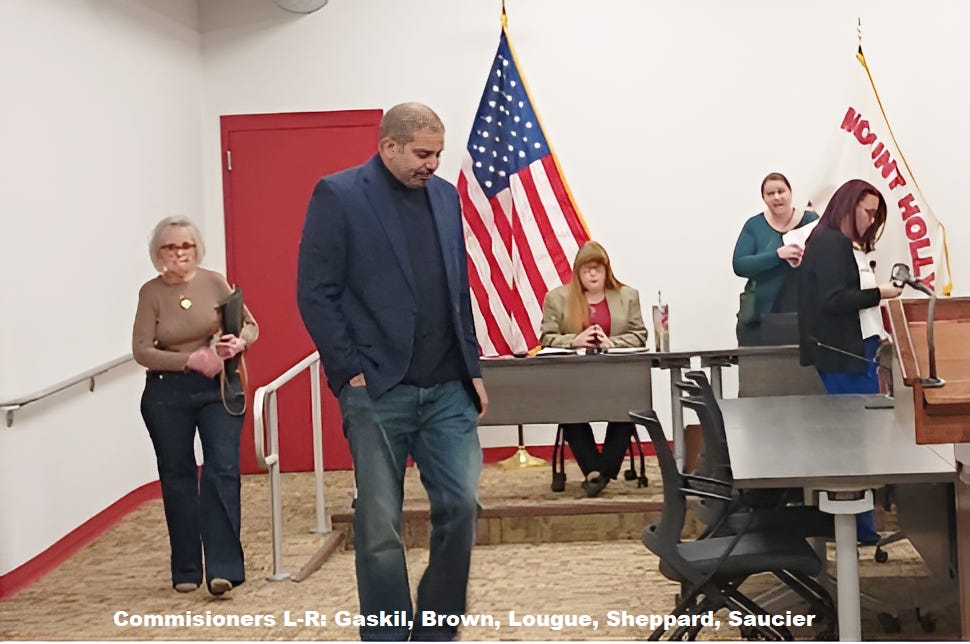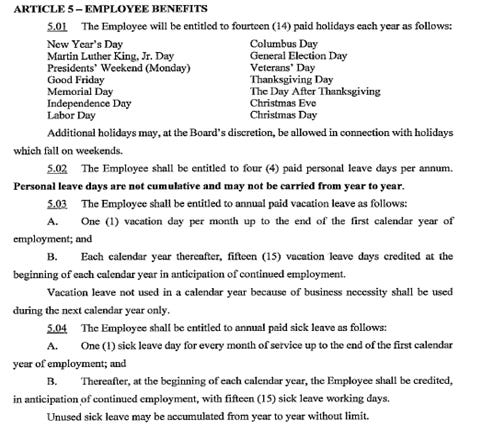MT. HOLLY FIRE DISTRICT BACK IN COURT
Case Outcome May Hinge On A “Reasonable Person” Or A “Whistle Blower”
The Mt. Holly Fire District and two Mount Holly residents met in court Friday to resolve a dispute about a potential conflict of interest in the appointment of the Fire District Director. The dispute centered on whether elected Fire District Commissioner June Gaskill should have been recused from voting since her husband is an employee and would be supervised by the new Director.
Arguments in a suit [BUR L-673-25] brought by residents Stone Laraway and Jason Fajgier against the Mt. Holly Fire District were heard by Burlington County Superior Court Assignment Judge Terrence R. Cook. Attorney Steve Raymond represented the Fire District, and Ted Rosenberg represented the plaintiffs. The plaintiffs sought “summary judgement” in the matter, which means the judge would decide a clear winner on the facts of the case without a trial.
Judge Cook started the proceedings by stating that he was happy the case was streaming on-line since so many residents were tuning in to the live stream.
Rosenberg started presentation of the plaintiff’s case by saying the facts of the case are simple:
a. June Gaskill, an elected Fire Commissioner, voted on a resolution to appoint the Fire District Director.
b. According to the District Bylaws, the Director has broad powers to supervise day to day operations and administrative matters. The Director is in charge of hiring, firing, promotion, disciplinary actions and District policies. Critically, the organizational chart shows that the Fire Marshall and Fire Inspector report directly to the Director.
c. The very small size of the organization does not produce significant isolation of personnel decisions and influence by the Director even though Chief Mason acts as a middle manager.
d. Specifically, the Director has authority over Fire Inspector George Gaskill, who is the husband of Fire Commissioner June Gaskill.
Judge Cook asked Rosenberg to address Raymond’s proposition, stated in papers supplied to the court, that the Director actually does not oversee day to day operations.
Rosenberg observed that a document submitted by Fire Chief Mason did not say that he had exclusive authority over Inspector Gaskill. “In Fact the Director is the only one who has the right to promote, demote, or terminate under the bylaws and his employment agreement”. But Rosenberg also stressed that the standard of proof for the conflict of interest law does not require that the conflict be proven. Its about what a reasonable person would conclude.
The law states that “it’s the appearance of a conflict that is enough. It’s not fanciful that someone in the Directors position could favor the husband of his boss. For these reasons we ask the vote be nullified and the present occupant of the position be removed.”
Ted Rosenberg, Attorney for the Plaintiffs
Attorney for the Fire District Steve Raymond disagreed with the interpretation of an unpublished case law being cited by Rosenberg, saying that the “concerns that the appellate division had [in that case] are not present” in this case, and that the appellate division had repeatedly used the phrase “direct supervision” which in this case is Chief Mason.
Judge Cook stopped Raymond’s rebuttal at this point to observe that “all tangible evidence” such as the bylaws and employment agreement speak to the Director having that authority.
Raymond responded that “there might be some overlap in roles” but Chief Mason performs all the day to day supervision. Furthermore, once Mason is “tenured”, he will have “whistle blower” protections which he could use to reveal any improprieties by the Director. Finally, Raymond noted that while the Chief and Director can make recommendations, it is the Board of Commissioners that finalizes hiring and firing recommendations.
This exchange led to more pointed questioning by Judge Cook, who went over all the authorities supposedly vested in the Director by the Bylaws and the Employment Agreement. One by one, Raymond stated that the Director did not actually have the authority to hire, fire, demote, promote or discipline - only the power to recommend. All of these functions are “ultimately” done by the Board of Commissioners.
As each of the powers prescribed to the Director were described as actually being the duties of the Chief, Judge Cook posed another question to Raymond:
“So What Does The Director Do?” Judge Terrence R. Cook
Raymond responded that the Director oversees the operations of the District for the Board of Commissioners, who are elected officials. In their roles, the Commissioners have very little direct interaction time with the District operations, so they rely on the Director to guide them.
[Note: The employment contract of the Director states that the job is generally 20 hours per week for a salary of $42,000 in 2025. See the excerpted section of the contract for more about the benefits given to this part time job].
Next, Judge Cook posed a question to Mr. Raymond stating that since the Director is “once removed” from Mr. Gaskill, would Raymond say there “can’t be influence” from the Director because Mr. Mason is in the middle?
Raymond responded that he would not say never, but that he found it “hard to believe” that there would be a conflict because of the protection provided to public employees and the possibility of lawsuits with people exercising whistleblower status. With that, Judge Cook thanked both attorney’s for the well written briefs and said that he would be issuing his decision within 2 weeks.
Except of Director Contract




